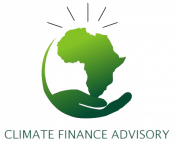Photo Credits: Stephen Okafor
NIGERIA
In 2019, the CFP team in collaboration with Ricardo Energy and Environment, the Nigerian Economic Summit Group and Climate Finance Advisory Lagos, conducted a climate finance landscape mapping project in Nigeria.
The project is built around the concept of the ‘supply chain’ (see Our Approach) for low-carbon finance, and the methodology used for the mapping is based on the categorisation of different types of actor according to the role in the supply chain.
The objective of the project was to cast light on the landscape for climate finance in Nigeria, identifying actors, institutions and sources of both financial and capacity building support for project developers and financiers. A database of over 200 ‘actors’ and ‘sources’ of green finance was populated, with a large number of sources ‘domestic’ in origin.
Following a design phase, the project database was populated by means of public sources and the specialist knowledge of the project team. The database finally included just over 200 entities, including those involved in all stages of the supply chain set out above from capacity building and grant providers to fully commercial sources of finance. These entities were then analysed according to the types of support they provide and the sectors they demonstrate interest in.
Following completion of the database and the preparation of initial findings, a series of meetings was organised in Lagos with groups representing different clusters of actors in the Nigerian climate finance landscape. The purpose of these meetings was to both test the initial findings from the database and to add a qualitative layer of context to the basic information in the database.
Informed by both the database and the focus group meetings, the key conclusions from the mapping project are as follows:
1. With few exceptions, most of the ‘components’ for a well-functioning climate finance supply chain are present in the Nigerian landscape. One key gap is skilled transaction intermediation, i.e. firms which can assist project and business promoters to bring together the different forms of financial and non-financial support that are often required to be combined to bring schemes to market. There are also few resources devoted specifically to adaptation, and a relatively small number of capacity building resources –though the quality of such resources would be more important than their number, so this observation requires further investigation.
2. These components / actors are not, however, engaging productively, with the result that the supply chain is not delivering financeable pipeline. There is no shortage of ambition or innovation among developers and entrepreneurs, and no shortage of ‘raw’ projects, but these are in most cases failing to progress through the supply chain to the primary finance stage, where the Lagos financial markets have ample capacity to fund
3. There was general agreement that a co-ordinating space of some kind, focussed on improving the functioning of the supply chain, would be of considerable value. There was also agreement that such an entity should ideally be independent of both financial and political interests. The CFA approach was seen as suitable as the basis for the functioning of such an entity.
The outcomes of the Nigeria mapping project have informed preparation of the next phase of the UK Nigeria Climate Finance Accelerator to be launched in 2021.

Climate Finance Pathfinder
- Ian Callaghan (Founder)
- Hans Verolme (Team Leader)

Climate Finance Advisory
- Dr. Jubril Adeojo
- Mr. Damilola Oyelowo

Nigerian Economic Summit Group
- Mrs. Uzo Egbuche
- Ms. Ese Ikponmwonba

Ricardo Energy and Environment
- Chris Dodwell
- Gratsiela Madzharova
- Blanca Fernandez Milan
CLIMATE FINANCE PATHFINDER – NIGERIA REPORT
OCTOBER 2020
The report is available in PDF and HTML format.
The HTML version contains interactive graphics.